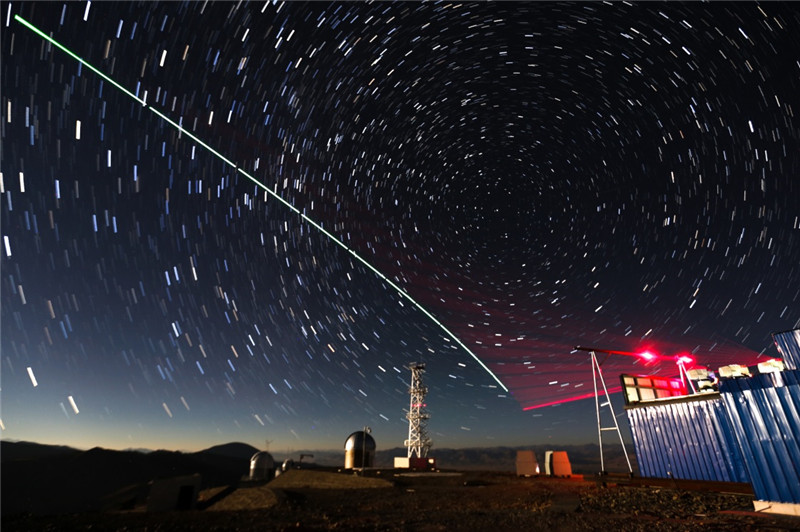


(File Photo)
The Chinese satellite Micius has successfully performed an ultra-secure, encrypted quantum communication link with ground stations in China and Austria, proving it has intercontinental capability, a research fellow told the Global Times.
Scientists, led by Pan Jianwei of University of Science and Technology of China, shared two small photographs and held a 75-minute video conference between the Chinese Academy of Sciences in Beijing and the Austrian Academy of Sciences in Vienna, which were secured by a quantum communication mechanism, according to a statement sent to the Global Times on Sunday.
The images were transmitted with the help of two relay stations in China and another in Austria, a research fellow of Pan's team told the Global Times on Sunday. A fiber optics line was used in the last link to both Beijing and Vienna.
The next step is to create a complete secure national information system by constructing an encrypted internet using quantum technology, according to Pan's team.
The successful communication between the Micius and regions in different countries proves that the satellite is capable of providing quantum communication anywhere in the world, according to the statement.
Technical details were published in Physical Review Letters on Friday after the joint China-Austria team's successful communications link last year.
A quantum cryptographic key uses entangled photons that are generated between ground stations and China's satellite Micius, preventing interception of the data.
"The laws of quantum mechanics make it physically impossible for the (transmission) to be intercepted and read without eavesdropping being detectable by the sender and receiver," noted the article in Physical Review Letters.
The capability demonstrated by Micius "is sufficient for the very early stages of a quantum internet, similar to the state of cell phones in the 1970s," according to Physics Review Letters, citing Pan.
Pan also anticipated that the first real applications of this technique will include encrypted voice calls, faxes, and email for transmitting sensitive financial or diplomatic information.
"This is the first demonstration of intercontinental quantum key distribution of any kind, and it will stand as a milestone towards future quantum networks," according to Physical Review Letters, a magazine under the American Physical Society, citing Ronald Hanson from the Technical University of Delft, the Netherlands, who is working on long-distance quantum telecommunication for a quantum internet.

 Award-winning photos show poverty reduction achievements in NE China's Jilin province
Award-winning photos show poverty reduction achievements in NE China's Jilin province People dance to greet advent of New Year in Ameiqituo Town, Guizhou
People dance to greet advent of New Year in Ameiqituo Town, Guizhou Fire brigade in Shanghai holds group wedding
Fire brigade in Shanghai holds group wedding Tourists enjoy ice sculptures in Datan Town, north China
Tourists enjoy ice sculptures in Datan Town, north China Sunset scenery of Dayan Pagoda in Xi'an
Sunset scenery of Dayan Pagoda in Xi'an Tourists have fun at scenic spot in Nanlong Town, NW China
Tourists have fun at scenic spot in Nanlong Town, NW China Harbin attracts tourists by making best use of ice in winter
Harbin attracts tourists by making best use of ice in winter In pics: FIS Alpine Ski Women's World Cup Slalom
In pics: FIS Alpine Ski Women's World Cup Slalom Black-necked cranes rest at reservoir in Lhunzhub County, Lhasa
Black-necked cranes rest at reservoir in Lhunzhub County, Lhasa China's FAST telescope will be available to foreign scientists in April
China's FAST telescope will be available to foreign scientists in April